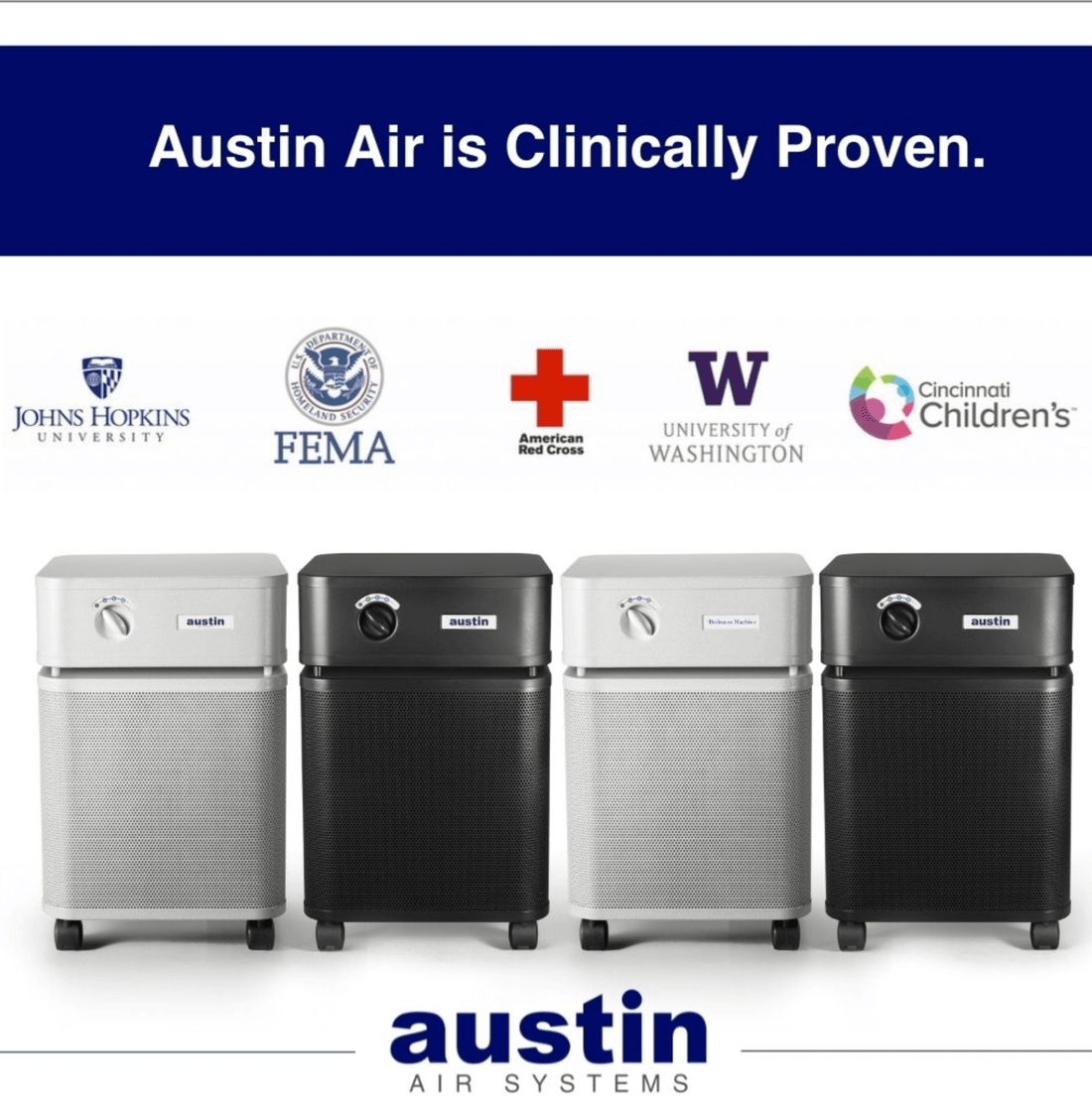
Using Your FSA or HSA Insurance to Purchase Your Air Purifier
Share
FSA and HSA Eligible Air Purifiers: Improve Your Home Air Quality and Save Money
Air pollution is a pervasive issue in our world, and it's not limited to bustling urban areas. Surprisingly, the air inside your home can be even more polluted than the air outdoors, as per the Environmental Protection Agency (EPA). This indoor air pollution can pose health risks, making it crucial to take measures to enhance the air quality within your living space. Air purifiers offer a practical solution to reduce contaminants in your home environment. They are particularly beneficial for individuals dealing with allergies or asthma, as they can effectively remove allergens, pet dander, chemicals, and other airborne pollutants. What's even more appealing is that certain air purifiers might be FSA and HSA eligible, providing an opportunity to address air pollution and save money simultaneously.
Understanding the Difference Between FSA and HSA
Before delving further into the benefits of using FSA and HSA funds for air purifiers, it's essential to grasp the fundamental distinctions between these two health-related accounts.
Flexible Spending Accounts (FSAs):
Flexible Spending Accounts are employer-sponsored benefits that empower you to designate a portion of your pre-tax income to cover qualified medical expenses. One significant aspect of FSAs is that you must decide at the beginning of the plan year how much money you want to allocate, and these funds are "use-it-or-lose-it." This means any unspent FSA funds typically do not carry over to the next plan year, making it crucial to utilize them effectively. Therefore, if you're considering purchasing an air purifier to improve your home's air quality, now may be an opportune time to act. Check with your plan administrator to determine whether air purifiers qualify as FSA-eligible expenses. Often, a letter of medical necessity (LMN) from your physician may be required to substantiate the medical need.
Health Savings Accounts (HSAs):
Health Savings Accounts, on the other hand, differ significantly from FSAs. HSAs are designed for individuals covered by a high deductible health plan (HDHP). With HSAs, you have the flexibility to contribute throughout the year, in increments of your choosing, up to an annual maximum. The key differentiator here is that HSA funds remain with you, even if you change your health plan, and they can be utilized throughout your life, including in retirement.
Here are some other noteworthy differences between FSAs and HSAs:
- FSAs are typically employer-sponsored plans, while HSAs are owned by you. When switching employers, you can take your HSA with you, whereas funds contributed to an FSA often cannot be carried over.
- You can open an HSA independently, even if it's not offered by your employer, as long as you have an HSA-eligible health insurance policy.
- HSAs do not have the "use-it-or-lose-it" constraint. Unspent HSA funds remain in your account year after year, even into retirement. Conversely, FSAs typically require you to spend the funds within the plan year or a carryover period determined by your employer.
- Adjusting your regular contribution amounts to your HSA is flexible and can be done at any time during the year, while FSA contributions are typically set at the beginning of the plan year and can only be altered in cases of qualifying events.
- HSAs offer the option to invest funds for long-term growth, which is not a feature of FSAs.
- HSAs also provide unlimited time for reimbursement. You can withdraw HSA funds for eligible expenses at any time. In contrast, FSAs often require you to submit receipts by a specific deadline to substantiate the expenses as eligible per IRS requirements.
Using FSA and HSA Funds for Air Purifiers
While traditional health insurance plans rarely cover the cost of air purifiers, FSA and HSA health insurance accounts can be the solution you need to make these devices more accessible. If you suffer from medical conditions such as asthma, allergies, or chronic obstructive pulmonary disease (COPD), and you use an air purifier to manage your symptoms, it's highly likely that your FSA or HSA funds can be utilized to cover the expenses.
Austin Air purifiers are a notable example of such devices that may be eligible for FSA and HSA coverage. These air purifiers have undergone clinical trials in partnership with renowned institutions like Johns Hopkins University, Cincinnati Children's Hospital, and the University of Washington. The positive results of these trials highlight the effectiveness of Austin Air purifiers in addressing various medical conditions and improving indoor air quality.
In conclusion, if you're dealing with health issues that can be alleviated by cleaner air, it's prudent to explore the potential of using your FSA or HSA accounts to save money on air purifiers. These accounts offer tax advantages and flexible spending options, making them a valuable resource for enhancing your well-being and the air quality in your home. If you're interested in more information or specific details on FSA- and HSA-eligible products, you can refer to the following links:
If you are interested in more information, check out these links:
https://soundadmin.com/question-of-the-month-what-allergy-products-are-fsa-hsa-eligible/
https://www.aetna.com/health-guide/hsa-vs-fsa.html